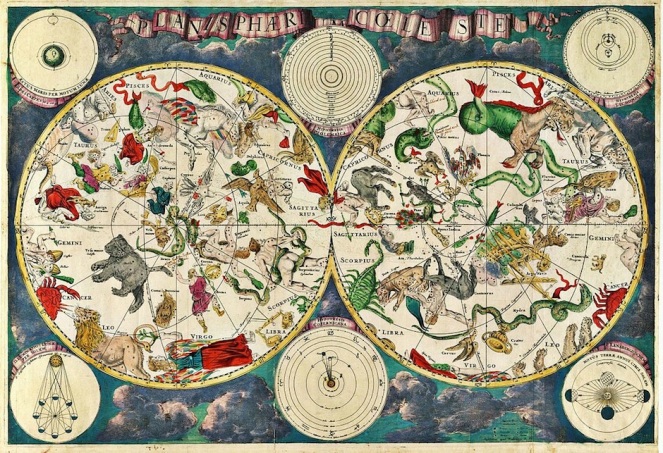
History of Astrology is an ancient practice that has been around for thousands of years. It involves studying the positions and movements of celestial bodies and their influence on human affairs. In this article, we will explore the history of astrology and how it has evolved over time.
Early History of Astrology
Astrology has its roots in ancient civilizations such as Mesopotamia, Egypt, and China. These civilizations developed complex systems for observing and tracking celestial bodies such as the sun, moon, planets, and stars. The Babylonians were particularly skilled at observing and recording celestial movements and developed the zodiac system that is still used today.
In ancient Egypt, astrology played an important role in religion and government. The Pharaohs consulted astrologers to predict the best times for planting crops, conducting military campaigns, and building monuments. The Chinese also developed a complex system of astrology that was based on the movements of the planets and stars.
Astrology in the Middle Ages
During the Middle Ages, astrology became more closely linked to the study of medicine and the occult. Astrologers began to develop more complex systems for interpreting celestial movements and their influence on human health and well-being. Astrology also became closely associated with alchemy, magic, and divination.
In the 12th century, the Persian astrologer Abu Ma’shar developed a comprehensive system of astrology that incorporated elements of ancient Greek and Babylonian astrology. His system was widely adopted by European astrologers and had a significant influence on the development of Western astrology.
The Renaissance and the Enlightenment
During the Renaissance, astrology experienced a revival as scholars began to study ancient texts and incorporate new knowledge from science and mathematics. Astrologers developed new techniques for interpreting celestial movements and their influence on human affairs.
However, during the Enlightenment, astrology came under attack from scientists and skeptics who dismissed it as superstition and pseudoscience. The development of astronomy and the discovery of new planets and celestial bodies also challenged traditional astrological beliefs.
Modern Astrology
Despite its challenges, astrology continued to evolve and adapt to new knowledge and cultural shifts. In the 20th century, astrology experienced a resurgence in popularity as people sought new ways to understand themselves and their place in the world.
New forms of astrology emerged, such as psychological astrology, which focused on the individual’s psychological makeup and inner world. Astrologers also began to incorporate new elements, such as asteroids and the outer planets, into their systems.
Today, astrology is a diverse and complex field that encompasses many different traditions and practices. Some people use astrology as a tool for personal growth and self-discovery, while others use it to gain insight into relationships, career, and other areas of life.
Conclusion
The history of astrology is a long and complex one, spanning thousands of years and many different cultures. Despite its challenges and controversies, astrology has continued to evolve and adapt to new knowledge and cultural shifts. Today, it remains a popular and widely practiced form of divination and self-discovery, offering insight and guidance to those who seek it.
